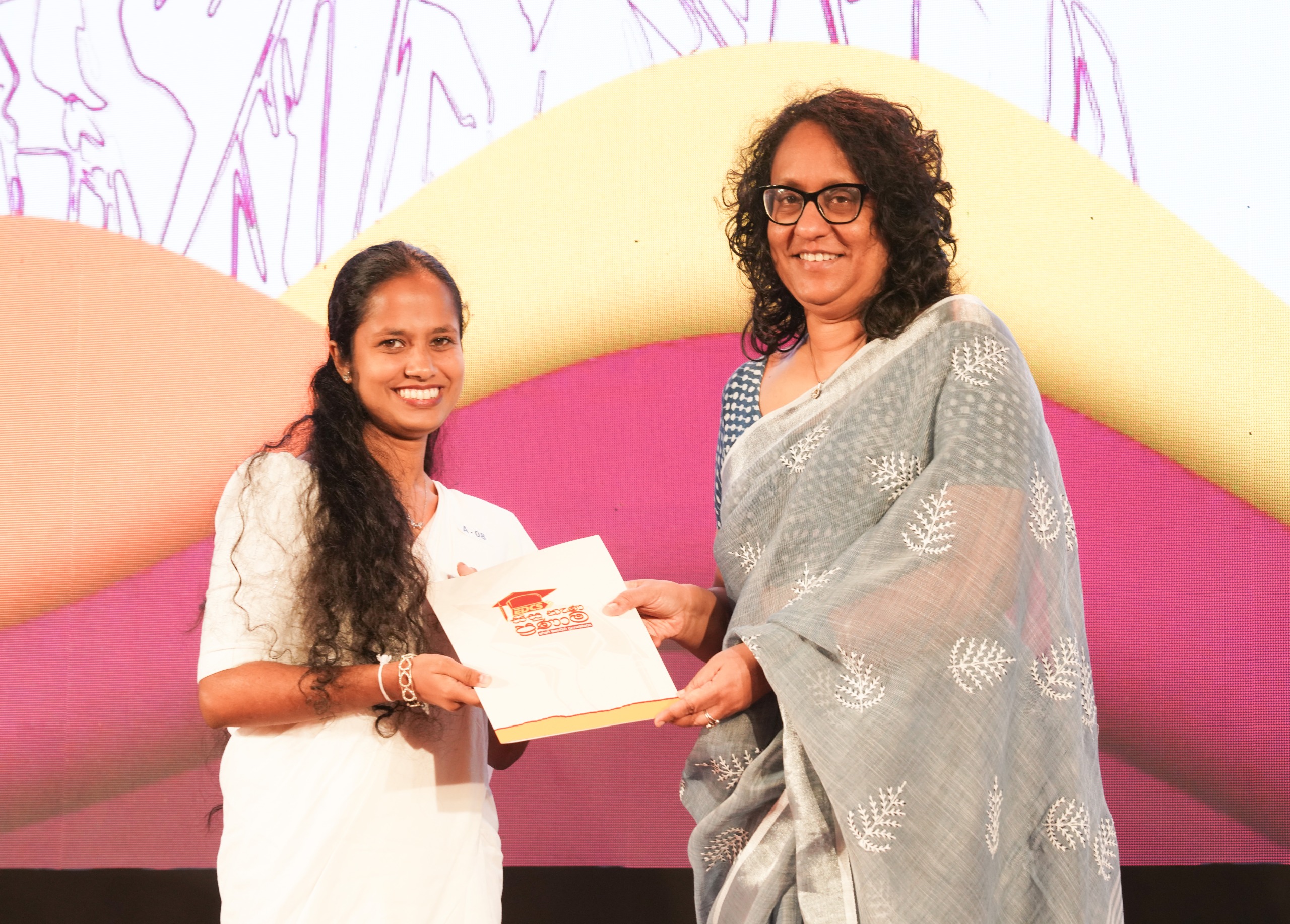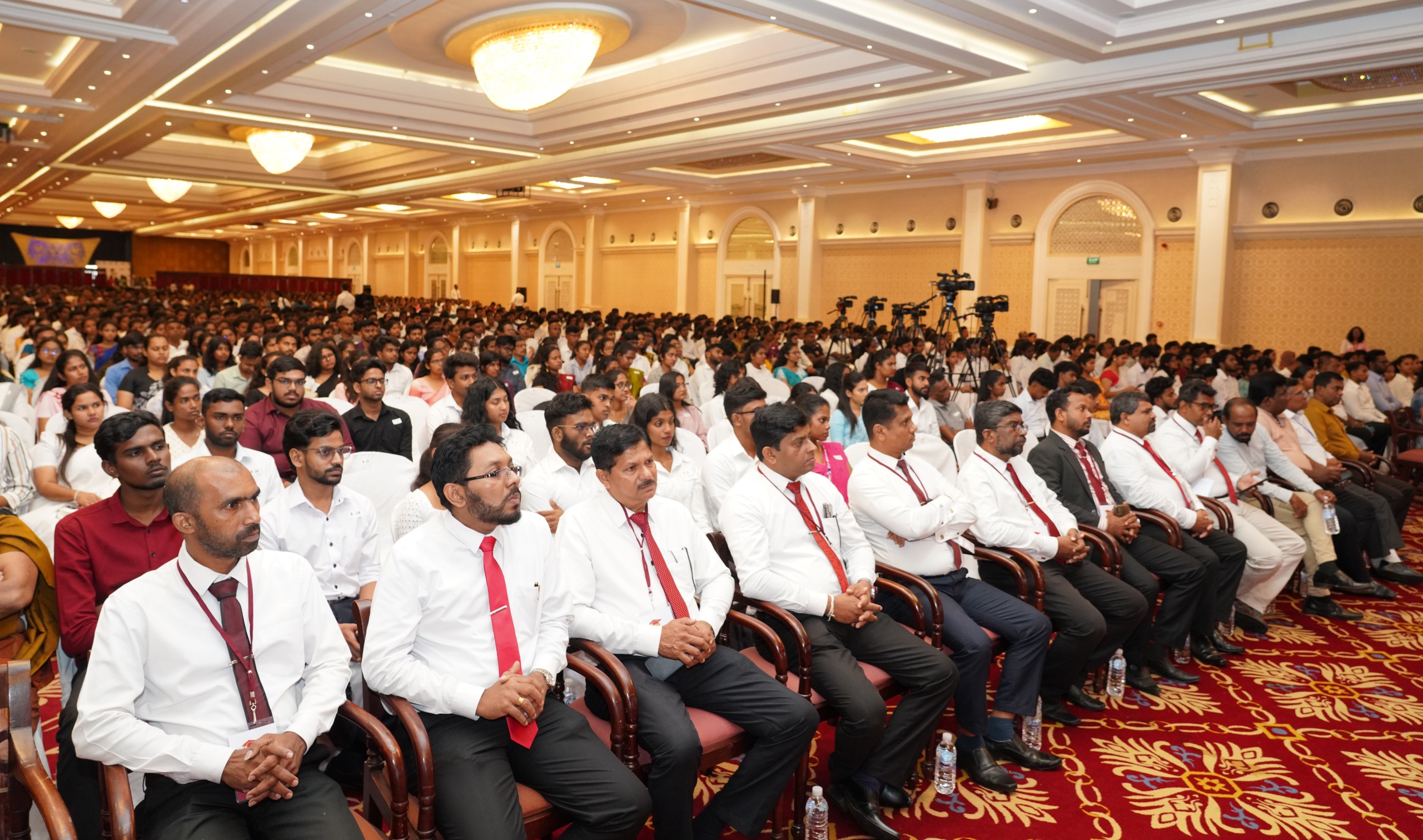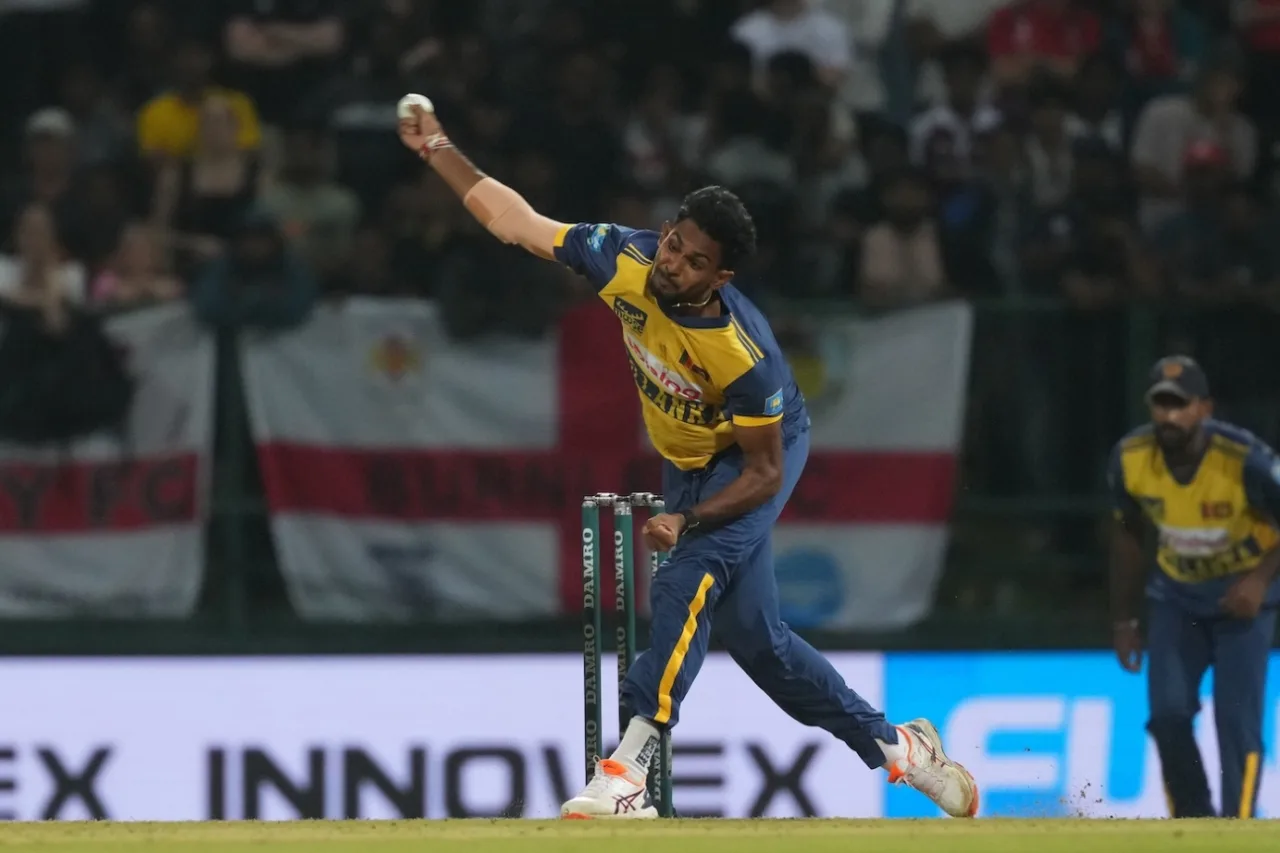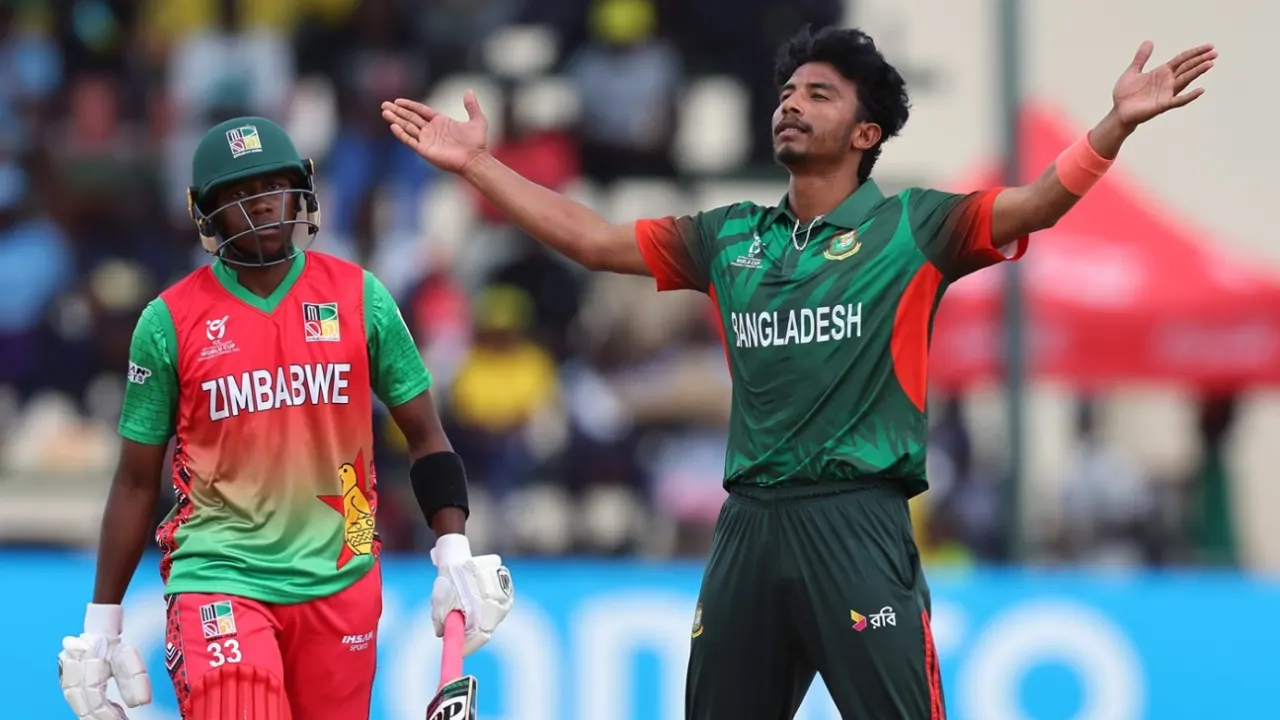Latest News
Avoid taking photos /filming polling-related activities, and refrain from uploading them on social media platforms -EC

Commissioner General of Elections Saman Sri Rathnayake requests all social media account holders and administrators to refrain from photographing or filming polling stations, marked ballot papers, and sharing them on social media platforms as such actions constitutes a violation of election laws.

Latest News
In order to safeguard the future of the country, a quality human resource must be developed. – Prime Minister

Prime Minister Dr. Harini Amarasuriya stated that in order to ensure the economic, social, and cultural security of the country, it is essential to develop a quality human resource, and that education plays a vital role in achieving this goal.
The Prime Minister emphasized that the government is committed to bring about a transformation in the education sector, and that the government will continue to move forward by overcoming obstacles encountered along the way, guided by a clear vision and purpose.
The Prime Minister made these remarks while addressing the EDCS Sisu Nena Pranama scholarship award ceremony held on Saturday (31) at Temple Trees, organized to recognize the children of the members of the Education Co-operative Society (EDCS) who have been selected to state universities for the academic year2023/2024.
Elaborating further, the Prime Minister noted that this program, organized by the Education Service Employees– Co-operative Thrift and Credit Society Ltd, is not merely about providing scholarships, but is an occasion that recognizes and appreciates the dedication of students and their parents who are preparing to shoulder the responsibility of the country’s future.
The Prime Minister also pointed out that it is a remarkable achievement that a society which began in 1930 with just 58 members and a membership fee of one rupee has today grown into the largest cooperative society in South Asia, with approximately 215,000 members.
The Prime Minister further highlighted how rapidly the world is changing, and the increasing necessity of developing human resources in the face of economic and environmental crises. She stressed that the education system must be transformed from the level of school education itself to align with the demands of the modern world, and that students entering universities should become leaders and active participants in this transformation.
Noting that out of nearly 300,000 students who enter primary education each year, only about 40,000 gain admission to universities, the Prime Minister urged students to make use of this opportunity for the development of the country.
Addressing the occasion, Deputy Minister of Labour and General Secretary of Ceylon Teachers Service Union, Mahinda Jayasinghe, stated that due to corruption-free management, it was possible to increase the financial stability of the society from Rs. 1,200 million to Rs. 1,700 million within a short period of approximately nine months.
Under this year’s program, scholarships amount to over Rs. 13.7 million were awarded to 2,292 students who have been selected to state universities.
This scholarship program, which initiated in 1984 with 15 students and an initial fund of Rs. 3,500, has been conducted continuously for 41 years. At present, scholarships of up to a maximum of Rs. 75,000 per student are awarded, demonstrating the collective strength and solidarity of the teaching community.
The event was attended by the Chairman of the Education Development Cooperative Society, Lal Kumara, the Western Province Director of Education, Darshani Iddamalgoda, along with other officials.

[Prime Minister’s Media Division]
Latest News
Pathirana: ‘My body just automatically changed the release point’ after injury

If there was one positive from Sri Lanka’s defeat to England in the first T20I, it was how well their bowlers kept England’s batters in check on a batter-friendly surface. Particularly Matheesha Pathirana.
Pathirana, the 23-year-old slinger, returned figures of 1 for 18 across his four overs – and it might have been two had Pathum Nissanka not grassed a chance in the deep – but his impact was immense, as evident in ESPNcricinfo’s MVP index, where he was only behind Adil Rashid, whose 3 for 19 ripped through Sri Lanka’s batting.
The target of 134 off 17 overs (later revised to 115 in 15) proved too low to defend, but the margin of defeat – 11-runs via DLS – was not as wide as it might have been given the nature of the pitch.
On a good batting surface, seamers in particular suffered – Sam Curran and Eshan Malinga went at around 12 an over, while Jofra Archer and Jamie Overton both went at over seven. But Pathirana ticked along at an economy rate of 4.5.
He did so bowling his entire repertoire, from quick yorkers – he was hovering in the mid-140s, with his quickest delivery clocking 148kph – to pace-off length deliveries and spicy short ones. Even more impressive was the fact that he bowled two of his overs inside the powerplay. Pathirana is renowned for his death-overs exploits, but here, with a sub-par total to defend, Sri Lanka called on their strike bowler to take the new ball.
“Even though I’ve practiced to bowl in the powerplay, there was no plan as such for me to bowl there today,” Pathirana said after the game. “It just so happened that our score was lower than we wanted, so it was decided that I would bowl in the powerplay.”
Pathirana’s control was impressive. Wides have been an issue in the past – a common trade-off for a slingy action such as his – but on Friday night, there were just three across his spell.”Honestly I didn’t do anything major, just simple, basic things. The main thing was increasing the number of repetitions in practice. If there is any improvement, that’s the reason”
“Over the last year, year-and-a-half, along with my injuries, it was a challenging period,” he said. “I lost my rhythm. I’ve worked very hard to get back to this level. And then more recently Mali aiya [Lasith Malinga] was here in Sri Lanka helping out, as well all the coaches at SLC – not just one – all of them helped me get here.”
The impact of fellow slinger Malinga cannot be understated. Malinga has long been a proponent of target-based training drills, and hours of repetitive practice. And most recently he has been working as Sri Lanka’s fast-bowling coach in the lead-up to the T20 World Cup.
“Honestly I didn’t do anything major, just simple, basic things,” Pathirana said. “The main thing was increasing the number of repetitions in practice. If there is any improvement, that’s the reason. In terms of practice I increased it greatly.”
It’s a sharp turn in fortunes for Pathirana, who had only played two T20Is for Sri Lanka in 2025 – owing to a combination of poor form and injuries – and had been released by Chennai Super Kings [CSK] following IPl 2025. He had since been picked up by Kolkata Knight Riders (KKR), but that was more of an educated punt than anything based on tangible data.
Among the criticisms levied at Pathirana during this period was that his release point was not as low as it used to be. Stephen Fleming, the CSK coach, in fact pointed out this very fact when talking about the quick bowler’s decline in IPL 2025.
On Friday, Pathirana’s release point was lower than in recent times but still not as low as during his breakout season. He explained that his change in action had largely been involuntary, and down to a fairly serious shoulder injury he had been nursing.
“Yes,” he responded when asked if his release point had changed. “In the recent past, I was playing with a fairly major shoulder injury. So I think my body just automatically changed the release point. Even now I am doing rehab in between matches, and I think that’s why I’m seeing an improvement, and so you can see that the release point is getting to what it used to be.”
A fit and firing Pathirana is crucial for Sri Lanka, and with Dushmantha Chameera waiting in the wings, as well as Eshan Malinga ticking along well – he picked up two wickets on Friday with clever variations – Sri Lanka’s seam contingent at least looks in rude health heading into the World Cup.
[Cricinfo]
Latest News
U 19 World Cup: Emon five-for gives Bangladesh consolation win against Zimbabwe

A clinical five-for from Iqbal Hossain Emon set up a consolation win for Bangladesh in their final match of the Super Six and this edition of the Under-19 World Cup. Chasing 254, Simbarashe Mudzengerere’s 70 was the only meaningful contribution in a chase that fizzled out with Zimbabwe reduced to 54 for 5, then 104 for 7.
Emon took out both the openers in his opening spell en route to scalping four of the first five wickets to fall in the Zimbabwe chase. Al Fahad complemented him with the new ball and thereafter, taking three wickets for 39 runs in his own spell – this included the final wicket of the chase as well, when he knocked over Webster Madhidhi.
The most significant resistance in Zimbabwe’s innings was the 64-run partnership between Mudzengerere and Shelton Marzvitorera – the highest for the ninth wicket for them in Youth ODIs. However, by then, the required rate had long climbed out of reach, and Al Fahad’s slow bouncer dismissed Mudzengerere to snuff out any hopes of a miracle.
Earlier, Bangladesh’s innings had been set up by captain Azizul Hakim’s 59 off 87. His steady knock, from No. 3, came to an abrupt end when Tatenda Chimugoro had him nicking behind to the keeper. Rizan Hossan came close to a half-century himself, but was prised out on 47 by Michael Blignaut. Bangladesh were reduced to 153 for 4, then 211 for 8 with less than four overs to go.
The Zimbabwe bowlers, who had kept control of the economy rate throughout a disciplined bowling effort, gave away 22 runs off Webster Madhidhi in the final over of the innings. Emon and Fahad were at the forefront of this attack too: they hit him for 4, 4, 2 wides, 4 and 6 to close out their innings, with the momentum swinging back to Bangladesh in their most productive over of the day.
The duo’s burst with the new ball ensured Bangladesh remained on top for the rest of the contest. Zimbabwe and Bangladesh are both knocked out of contention for the semi-finals at this World Cup, but by the time Fahad took the final wicket of the defense, the latter had something to celebrate.
Brief scores:
Bangladesh Under 19s 253 for 9 in 50 overs (Azizul Hakim 59, Rizan Hossan 47; Tatenda Chimugoro 2-49, Shelton Mazvitoerera 2-44, Michael Blignaut 2-41) beat Zimbabwe Under 19s 179 in 48.4 overs (Simbarashe Mudzengerere 70, Shelton Mazvitorera 42*; Iqbal Hossain Emon 5-24, Al Fahad 3-39) by 74 runs
[Cricinfo]
-

 Business6 days ago
Business6 days agoComBank, UnionPay launch SplendorPlus Card for travelers to China
-

 Business3 days ago
Business3 days agoClimate risks, poverty, and recovery financing in focus at CEPA policy panel
-

 Opinion2 days ago
Opinion2 days agoSri Lanka, the Stars,and statesmen
-

 Business1 day ago
Business1 day agoHayleys Mobility ushering in a new era of premium sustainable mobility
-

 Opinion6 days ago
Opinion6 days agoLuck knocks at your door every day
-

 Business1 day ago
Business1 day agoAdvice Lab unveils new 13,000+ sqft office, marking major expansion in financial services BPO to Australia
-

 Business1 day ago
Business1 day agoArpico NextGen Mattress gains recognition for innovation
-

 Editorial1 day ago
Editorial1 day agoGovt. provoking TUs













